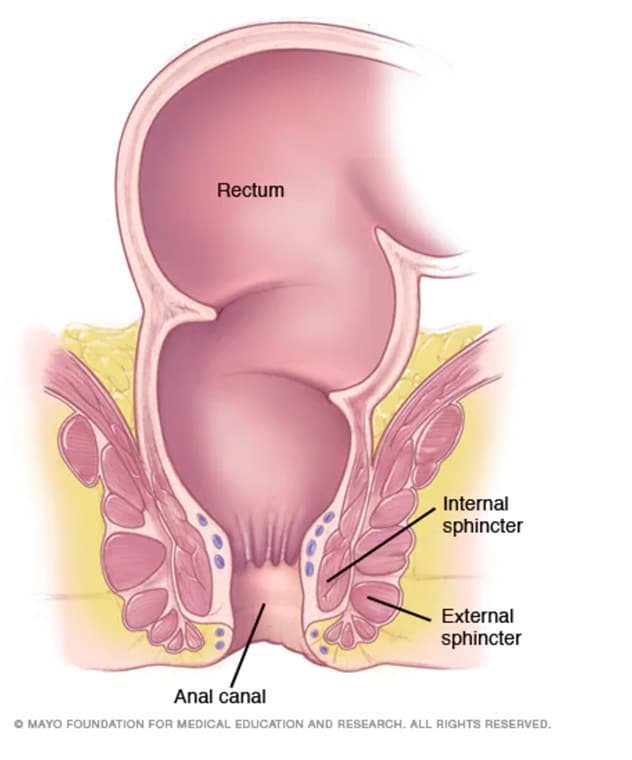An anal abscess is an contaminated cavity full of pus close to the anus or rectum. An anal fistula (additionally called fistula-in-ano) is a small tunnel that tracks from an opening inside the anal canal to an outdoor opening in the skin close to the anus. An anal fistula often outcomes from a previous or current anal abscess. As many as 50% of people with an abscess get a fistula. However, a fistula may also occur with out an abscess. Small glands simply contained in the anus are a part of regular anatomy. If the glands within the anus change into clogged, this will likely result in an infection. When the infection is severe, this usually leads to an abscess. Bacteria, feces, or foreign matter also can clog the anal glands and trigger an abscess to form. Crohn’s disease, most cancers, trauma and radiation can improve the chance of infections and fistulas. A affected person with an abscess might have ache, redness or swelling in the realm across the anal area or canal. Data was creat ed by GSA Content G enerator Demov ersion !

 Other widespread signs include feeling in poor health or drained, fever and chills. Patients with fistulas have comparable symptoms, in addition to drainage from an opening near the anus. A fistula is suspected if these signs tend to keep coming back in the identical area each few weeks. Most anal abscesses or fistulas are diagnosed and managed based on clinical findings. Occasionally, imaging studies resembling ultrasound, CT scan or MRI may also help in the analysis and administration of deeper abscesses and may be used to visualize the fistula tunnel. The remedy of an abscess is surgical drainage beneath most circumstances. It is necessary that your surgeon be very accustomed to treating abscesses and fistula. Colorectal surgeons are specialists in this space. For many patients, an abscess can be drained surgically by way of a simple process. An incision is made within the skin close to the anus to drain the infection. This can be performed at your surgeon’s workplace with local anesthetic or in an operating room beneath general anesthesia.
Other widespread signs include feeling in poor health or drained, fever and chills. Patients with fistulas have comparable symptoms, in addition to drainage from an opening near the anus. A fistula is suspected if these signs tend to keep coming back in the identical area each few weeks. Most anal abscesses or fistulas are diagnosed and managed based on clinical findings. Occasionally, imaging studies resembling ultrasound, CT scan or MRI may also help in the analysis and administration of deeper abscesses and may be used to visualize the fistula tunnel. The remedy of an abscess is surgical drainage beneath most circumstances. It is necessary that your surgeon be very accustomed to treating abscesses and fistula. Colorectal surgeons are specialists in this space. For many patients, an abscess can be drained surgically by way of a simple process. An incision is made within the skin close to the anus to drain the infection. This can be performed at your surgeon’s workplace with local anesthetic or in an operating room beneath general anesthesia.
Some patients with extra severe disease may require a number of surgeries to take care of the issue. Surgery is almost at all times wanted to deal with an anal fistula. In many patients, anal if the fistula just isn't too deep, a fistulotomy is carried out. During this surgical procedure, the fistula track will likely be opened to allow healing from the underside up. The surgical procedure might require dividing a small portion of the sphincter muscle. A considerable amount of the sphincter muscle is not divided as this could lead to problems with bowel management (fecal incontinence). If the fistula monitor does contain a big portion of the sphincter muscle, other more involved surgeries are carried out to treat the fistula with out harming the sphincter muscle. Tougher instances could require multiple surgeries. Antibiotics alone should not effective in treating abscesses or fistula. Antibiotics may be wanted, in addition to surgical procedure, if a affected person has immunity issues, specific coronary heart valve conditions or widespread cellulitis (a bacterial infection of the skin and tissues below the skin).
Post has been created with GSA Content Gen erator Demoversion!
Providing your physician with an accurate medical history and undergoing a physical exam are essential steps in deciding if antibiotics are required. Your surgeon will advise you on correct postsurgical care. Unfortunately, despite proper treatment and complete healing, an abscess or a fistula can come again. If an abscess comes back, it means that maybe there is a fistula that must be handled. If a fistula comes again, additional surgical procedure will doubtless be required to treat the problem. What is A COLON AND RECTAL SURGEON? Colon and rectal surgeons are consultants within the surgical and non-surgical treatment of diseases of the colon, rectum and anus. They have completed advanced surgical training in the therapy of these diseases as well as full common surgical coaching. Board-certified colon and rectal surgeons full residencies usually surgery and colon and rectal surgery, and cross intensive examinations performed by the American Board of Surgery and the American Board of Colon and Rectal Surgery.